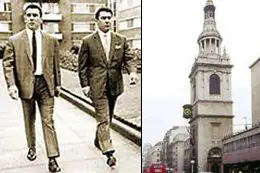A British poll showed that Cockney is slowly dying out. Cockney is a dialect that is mostly associated with the London working class. The language is being replaced by non-rhyming expressions that have come about due to the effects of text messaging and other jargons invented by the youth. A survey of 2,000 people revealed that most of them did not know some of the common Cockney words, and even those who did confessed to not having used the language in more than 6 months. Cockney slang was popularized in Charles Dickens novels and by street traders in the past. Street traders used it as a code language to confuse the police and their customers. East Enders, a BBC soap opera, has heavily influenced the spread of Cockney. The accents and lives of the characters in East Enders provides an opportunity for one to learn about the language and culture of the Cockney. Other radio and television programs and commercials have served to popularize the language since the 1960s.
Cockney refers to the language as well as the people who speak the language. Cockney is characterized by its choice of vocabulary and rhyming. To be a true Cockney, you have to be born within a certain area that is covered by the bells of St. Mary le Bow in East London, when they chime. The accent is traditionally associated with certain suburbs such as East End, Wapping, Hackney, Clerkennel, Hoxton, Aldgate, Limehouse, Bow, Stepney and Shoreditch Poplar.
The Cockney accent is one of the British accents that have been heavily criticized and viewed as inferior. A fake Cockney accent is sometimes referred to as Mockney. The rhyming slang works by combining two words, where the second word rhymes with what you want to stay. Some rhymes have been in use for many years and are well recognized. For instance, the rhyme “apples and pears” to mean stairs is one of the most popular rhymes, followed by “porky pies” to mean lies and “north and south” to mean mouth. Other rhymes which are not so well known include, “bacon and eggs” to mean legs and “bricks and mortar” to mean daughter.

